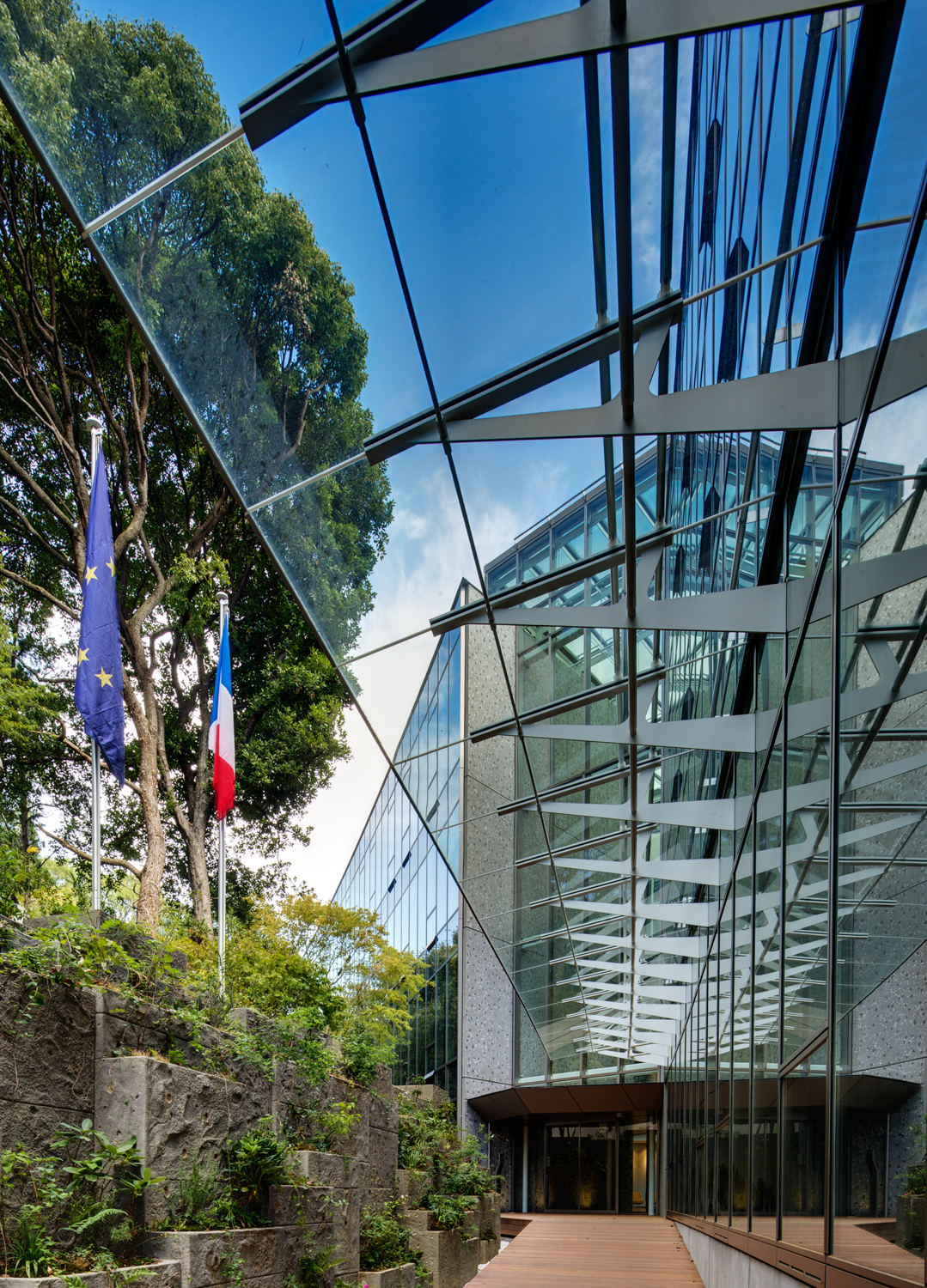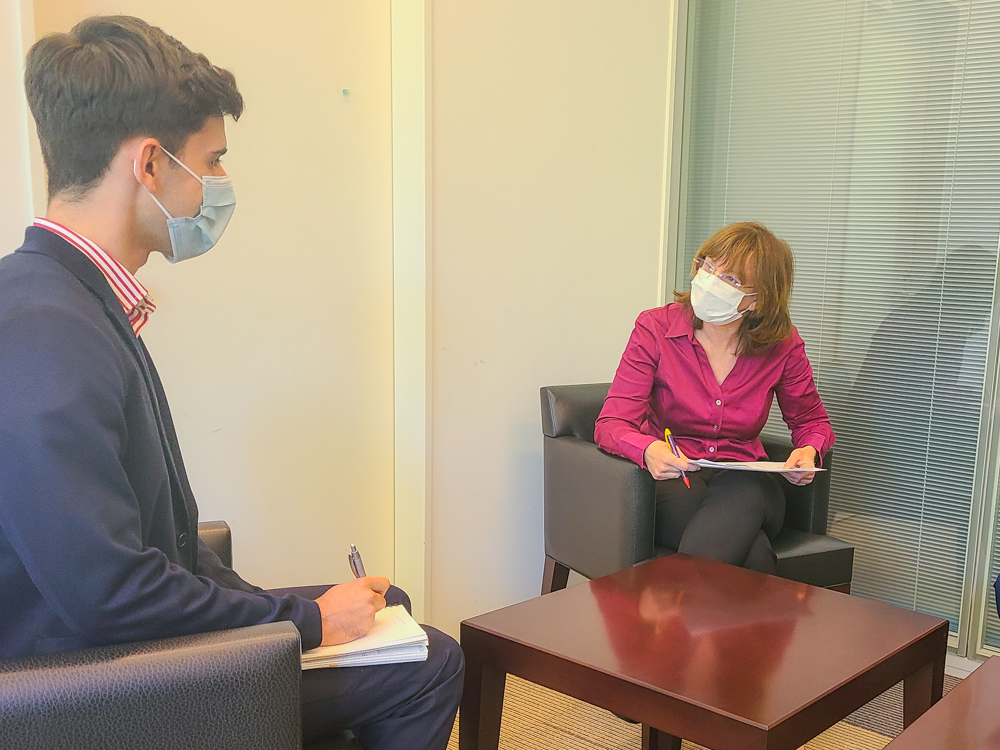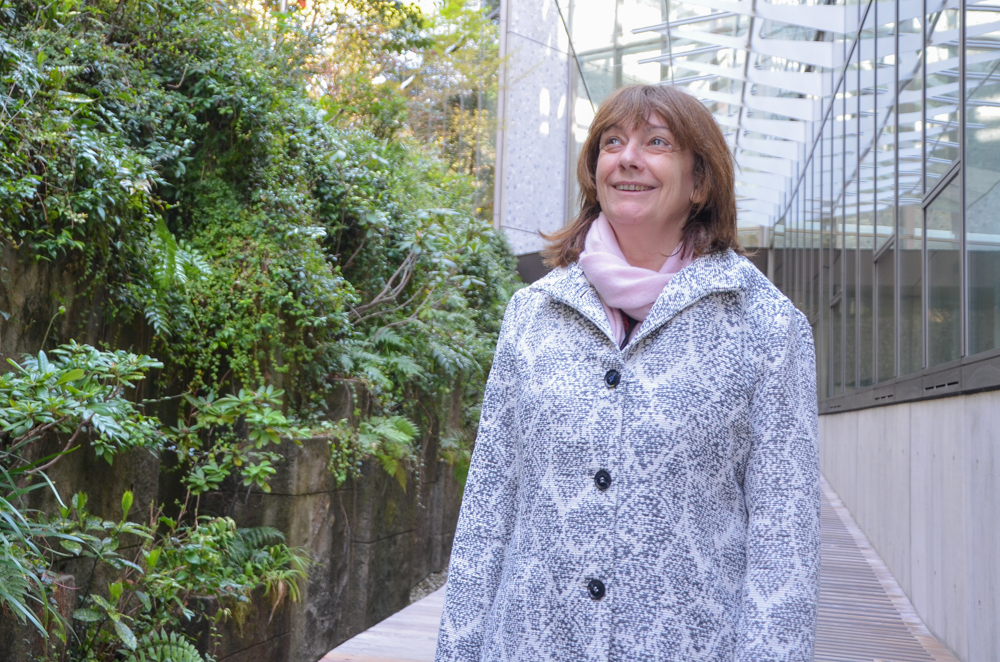01
My mission as Nuclear Counselor at the Embassy of France in Japan
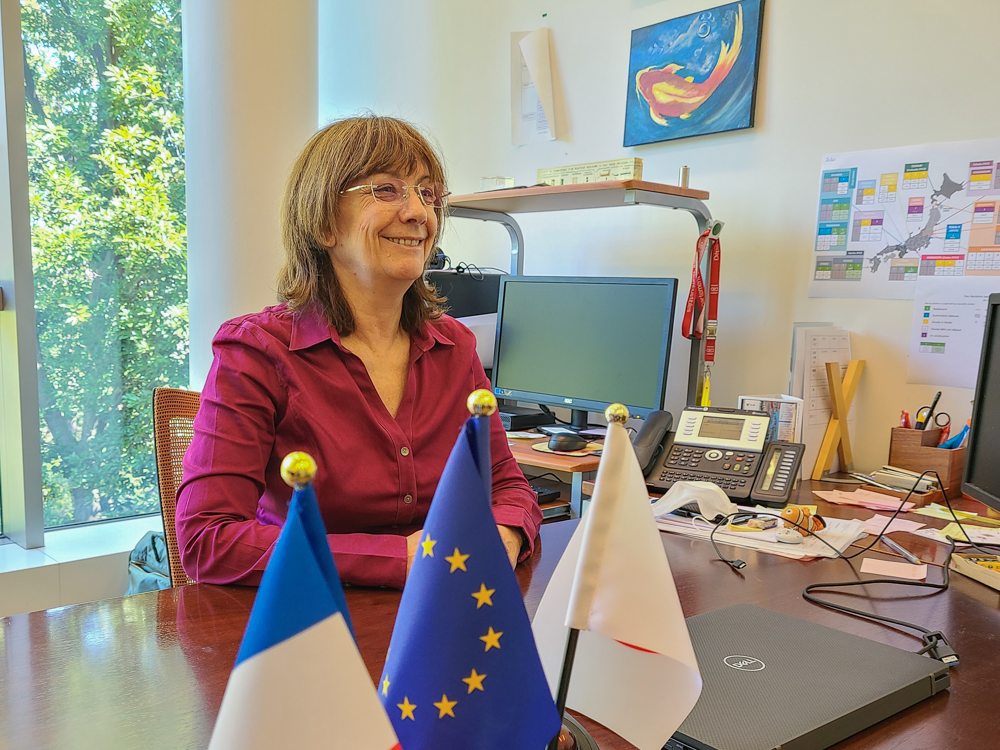
Japan and France have established a long-standing partnership regarding nuclear energy developments. My first mission consists in representing France, for the implementation international cooperation and French policies related to both nuclear fission and fusion topics. The second one addresses support to the French nuclear industry. In addition to the missions mentioned above, the nuclear service is also the local representative of the French Alternative Energies and Atomic Energy Commission (CEA) in Japan. We work on behalf of the CEA in the field of nuclear energy but also in the “non-nuclear” sector by carrying out technological monitoring and exchanges with Japanese partners on various research themes such as: fundamental physics and mathematics, life sciences, microelectronics and computing, renewable energy related technologies.
02
I visited the Fukushima Daiichi nuclear plant and I have been impressed by the decontamination on the site, the current status of decommissioning work, and the installation of a frozen soil wall.
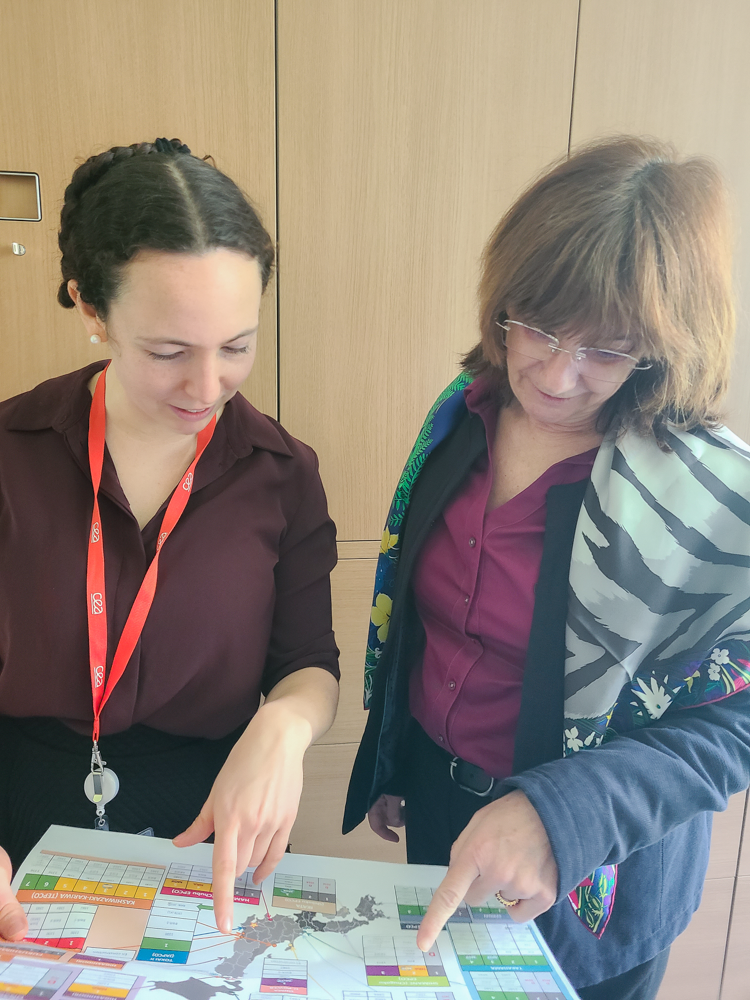
Indeed, I had the opportunity last autumn to join a Fukushima tour organized for representatives of French nuclear industries based in Japan. Before the tour, I had in mind some pictures I caught on TV-screens in 2011 such as grieving families, devastated landscapes by tsunami, destroyed reactor roofs after the explosions, … Since that time, even if I read articles on the huge efforts developed to secure and clean the nuclear site, even if I got feedbacks before from French workmates involved in partnerships with Japan regarding the huge work performed, I have been so impressed to see by myself the achievements after 10 years regarding decontamination of the site and facilities decommissioning. There are so many challenges that have been taken up. To illustrate this thought I would pick one result out: the ice wall set in the ground, surrounding the 4 damaged reactors. Indeed, with its 1550 refrigerated pipes set in drilled holes of 30-35m depth, an ice belt of 1.5km-long prevents ground waters from entering the reactor building basements and becoming contaminated. I think of it as a very ingenious and resourceful solution to a serious challenge. Regarding the overall French delegation feedbacks, I have kept in mind comments related to the significant reduction of the ambient dose allowing to work without specific radiation protection equipment on most of the areas, the mitigation of the generated amount of contaminated water along with the treatment to remove radionuclides, as well as the impressive introduction for the first time of a robot inside the containment vessel of reactor 2 to grasp and study the fuel debris.
03
At the time of the accident, it was the role of the Nuclear division of the French Embassy to select and analyze information coming from various channels in Japan.
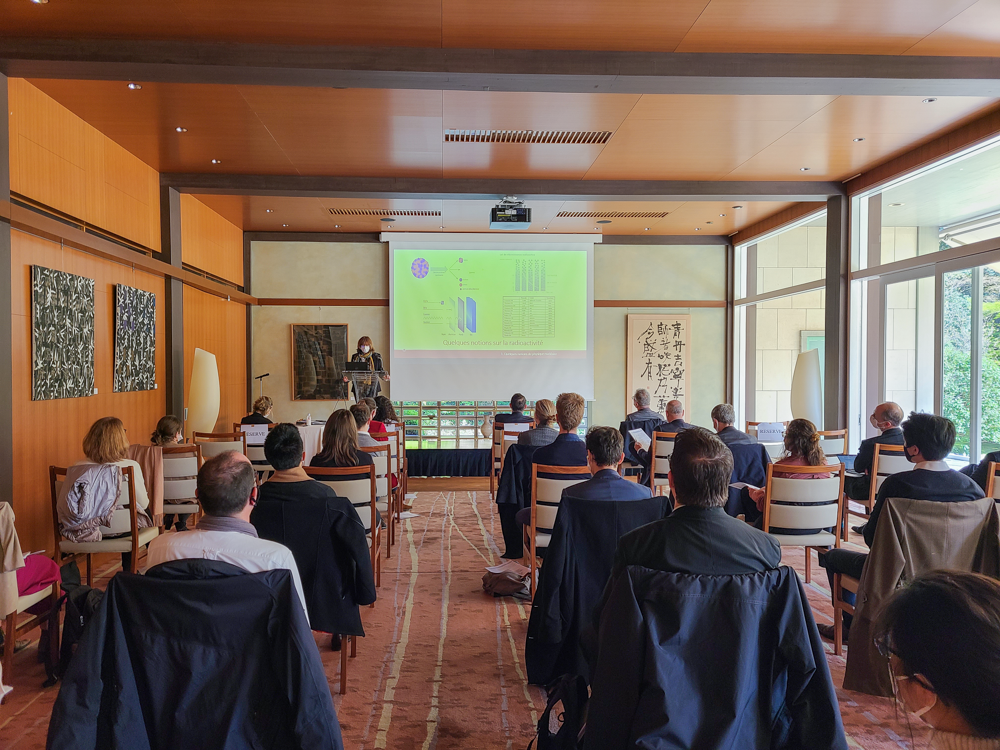
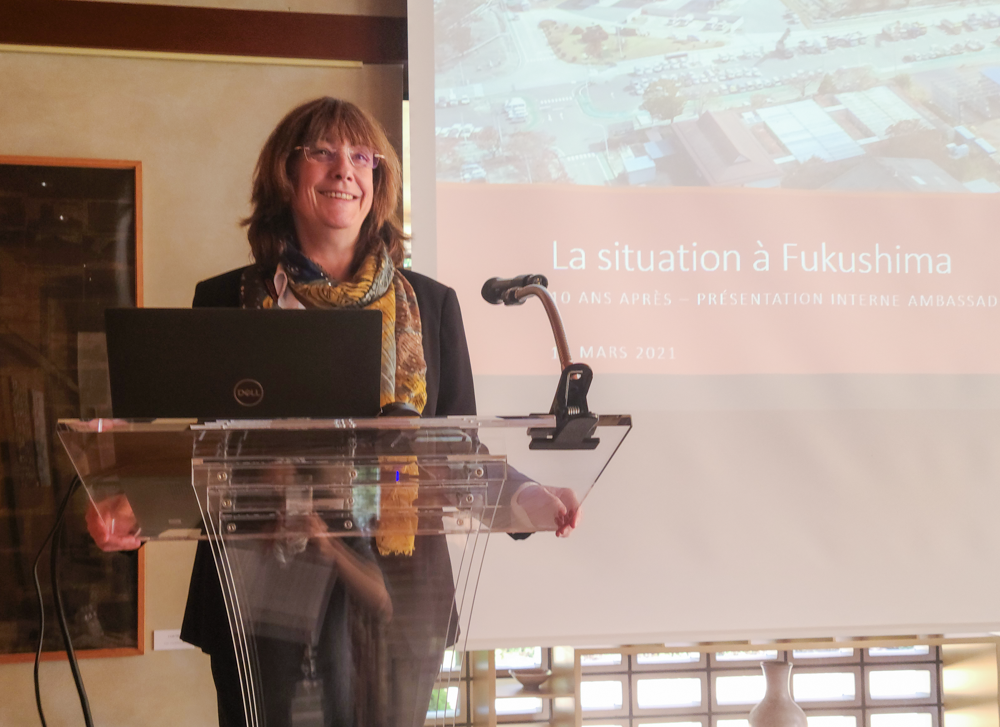
In the hours, days and weeks after the accident, the nuclear division of the Embassy of France in Japan provided France real-time information, through its network of contacts in Japan, following the press briefings organized by the Japanese Ministry of Economy, Trade and Industry (METI) ... The role of the nuclear division was to select, translate and analyze the information coming from several various channels in order to forward relevant data to the Ambassador and to the French nuclear institutions such as the Institute for Radiation Protection and Nuclear Safety (IRSN), the French National Authority for nuclear safety (ASN), CEA and the Ministry of Foreign Affairs. Simultaneously, clarifications from the nuclear division on the Fukushima events were requested by media and diplomatic channel too. Once the situation of the reactors was stabilized, exchanges and reporting to France have been gradually spaced out. Content and format of information sent to France have changed too. In addition to memos, regular newsletters have been edited since that time. Moreover, an overview related to the recovery progress status is published every year. The latest one prepared for the 10th commemoration, is available through the link (French language only): Le point Fukushima - 10 ans après
04
The management of the fuel debris remain the most difficult part in the decommissioning work of Fukushima Daiichi Nuclear Power Plant.
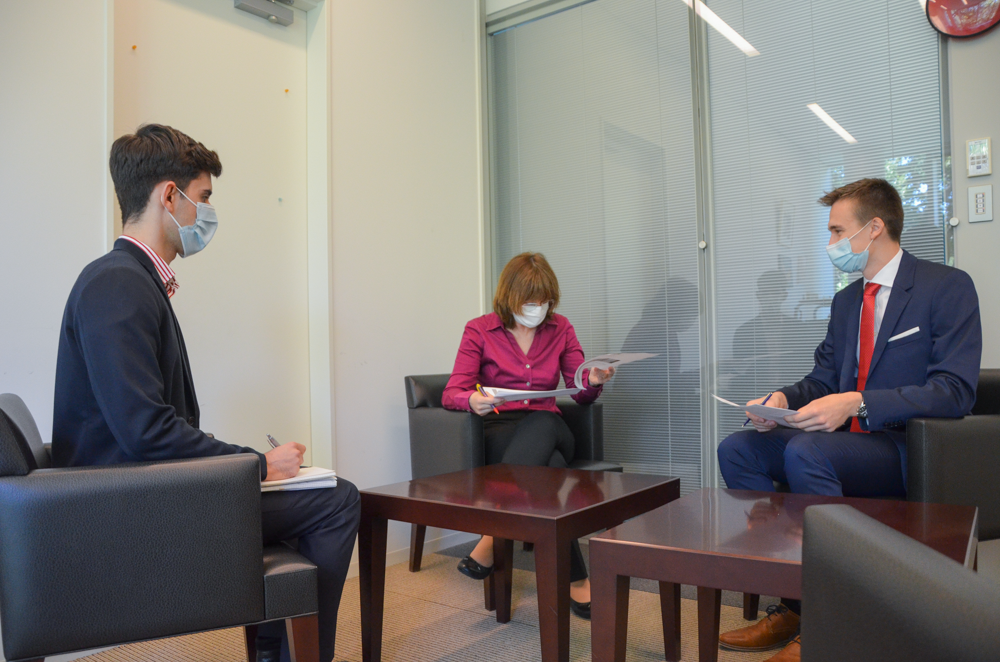
The decommissioning of the damaged reactors and particularly the management of the fuel debris resulting from core melting in units 1 to 3 remain the biggest challenge. It will require development of innovative technologies and practices as existing ones were developed for decommissioning nuclear facilities after the end-of-life shutdown will not be operable in Fukushima damaged reactors. Indeed, retrieval of fuel debris relies on the understanding of their location in the reactors and their characteristics. So, in-situ efforts requiring the use of high-tech robots that can move in severe radiative environments hampered by heavy structures, in order to locate the core debris, are essential. Debris samples will have to be extracted too, by remotely operated systems and their characteristics analyzed. Then only, retrieval scenarios can be built taking into account considerations of environmental impact, risks to workers, waste disposal, among other. All that stages form, in my opinion, the central components to succeed in 1F decommissioning.
05
Nuclear energy, as a stable and efficient supply, has a major role to play to face fluctuations in renewable energy production, therefore contributing to realize a carbon-free society.
As part of efforts to tackle global warming challenges, Japan and France have committed to a global energy transition with the stake to become a zero-carbon society by 2050. By December 2020, an action plan from METI toward green growth strategy was issued. Guiding principles for the electricity mix, consist in promoting renewable energies up to 50-60%. From my point of view, nuclear power, as a stable and efficient supply of carbon-free electricity, has a major role to play to face fluctuations in renewable energy production. Moreover, nuclear power has proven its resilience throughout the past years and shown that it is well suited to meet changing energy needs.

